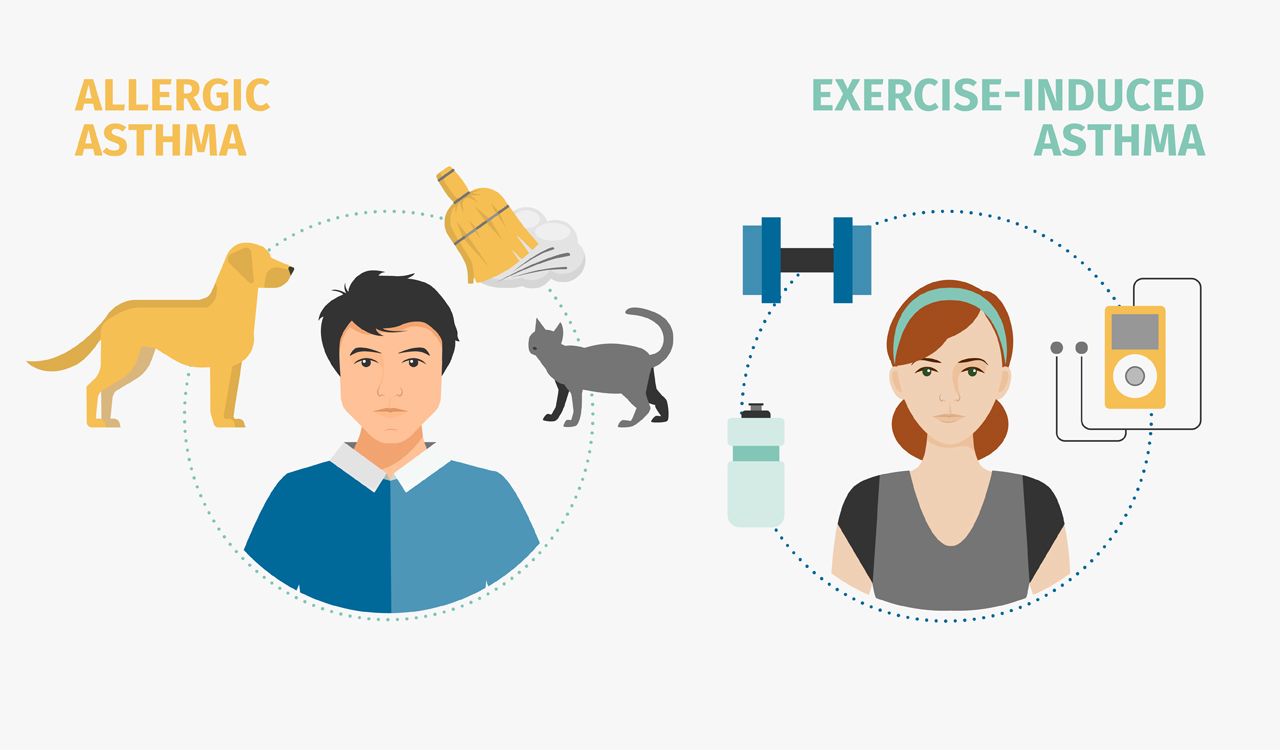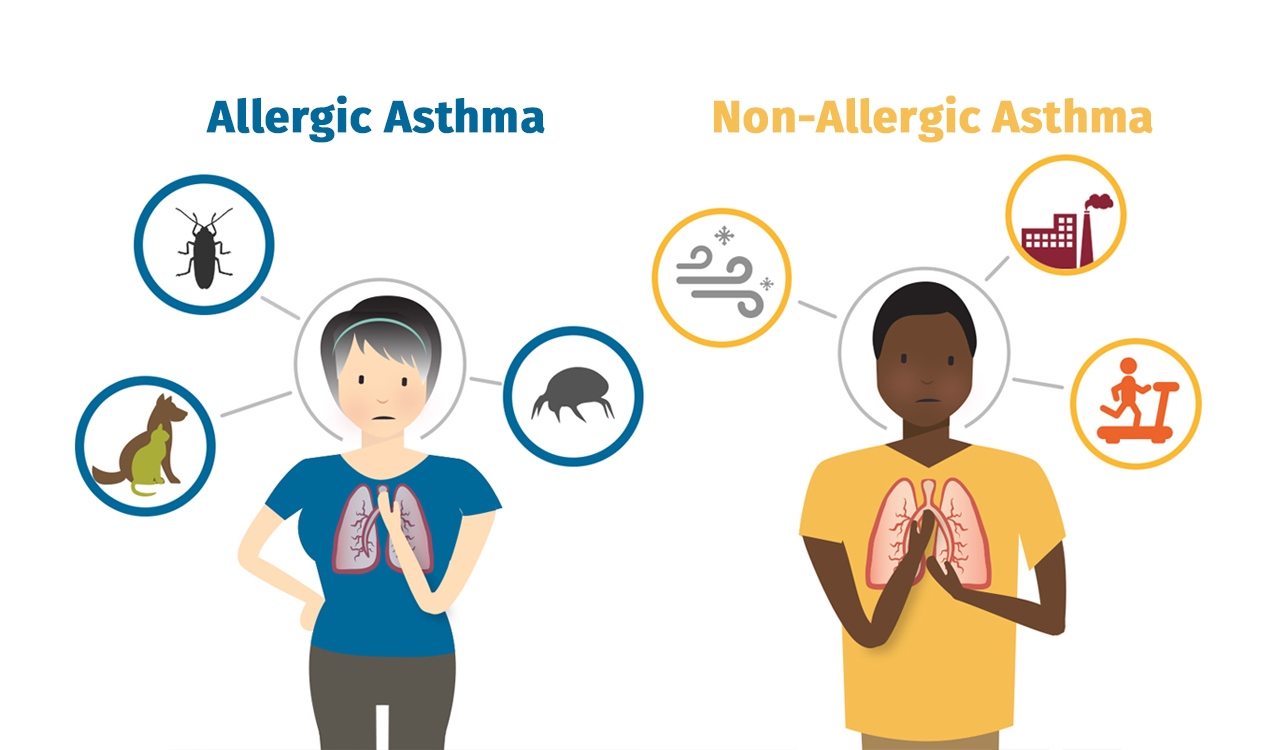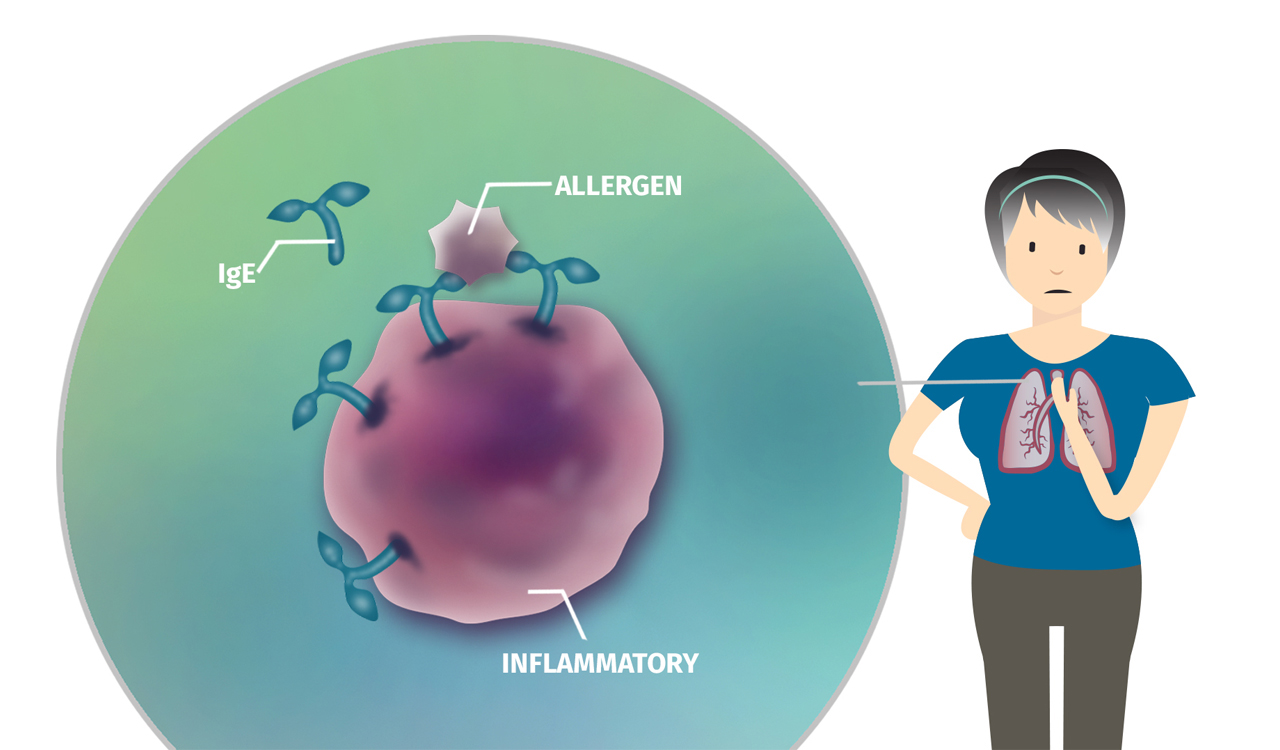Myth-busting: 5 facts about allergic asthma that may surprise you
May 15, 2018

(BPT) – To mark Asthma and Allergy Awareness Month, we’re busting five common myths about allergic asthma, which is asthma triggered by allergies. To learn more, visit allergicasthma.com.
1. MYTH: The most common type of asthma is exercise-induced asthma.

FACT: The most common type of asthma is allergic asthma, or asthma triggered by allergies.
What is allergic asthma, you ask? It’s asthma triggered by allergens in the air, which if uncontrolled can lead to an asthma attack. In a survey of more than 2,000 people conducted by the Asthma and Allergy Foundation of America, 81 percent of the general population was unaware that allergic asthma is the most common type of asthma. Even more astounding, half of those surveyed were people with asthma.
2. MYTH: Allergic asthma and non-allergic asthma are caused by the same things.

FACT: Allergic asthma is caused by allergens in the air; think dust mites or pet dander.
Allergic asthma is different than non-allergic asthma, which is typically triggered by factors such as exercise, stress, cold or dry air, smoke or other irritants. If you notice allergic asthma symptoms when you’re around your neighbor’s pet or in a dusty environment, you may want to talk to an allergist or pulmonologist about allergic asthma.
3. MYTH: Allergic asthma affects a small percentage of people with asthma.

FACT: Allergic asthma is actually quite common, accounting for about 60 percent of asthma cases in adults.
It affects an even larger portion of asthma cases in children, with 80 percent of cases being allergic. If you think you or a family member has allergic asthma, it’s important to speak with an allergist or pulmonologist. They can test you for allergic asthma, discuss treatment options and help you manage the disease.
4. MYTH: Skin tests are the only way to check for allergic asthma.

FACT: Skin tests are one of the ways to test for allergic asthma, but certainly not the only way. An allergist or pulmonologist may perform a blood test to check for an antibody known as IgE, or Immunoglobulin E.
IgE is an antibody that plays an important role in how your body responds to allergens. Its presence in an individual may trigger swelling of the airways in the lung, making it harder to breathe and therefore causing an asthma attack. An allergist can perform a skin or blood test to determine the presence of this antibody.
5. MYTH: Allergic asthma is difficult to control.

FACT: Allergic asthma can be well-controlled and treatment options are available. Learn more by talking to your doctor about the best treatment plan for you.
Signs of uncontrolled allergic asthma include: (1) experiencing asthma symptoms more than two days per week or multiple times on two or fewer days per week, (2) night time awakenings two or more times per month for children and one to three times per week for youths and adults, (3) requiring the use of a type of medicine called a short-acting beta-agonist (SABA) for symptom control more than two days per week or (4) experiencing flare-ups requiring oral corticosteroids two or more times per year. If one or more of these is true for you or someone you know, talk to a specialist, such as an allergist or pulmonologist about treatment options that may be able to help you better control your asthma.
XOL/040218/0082






